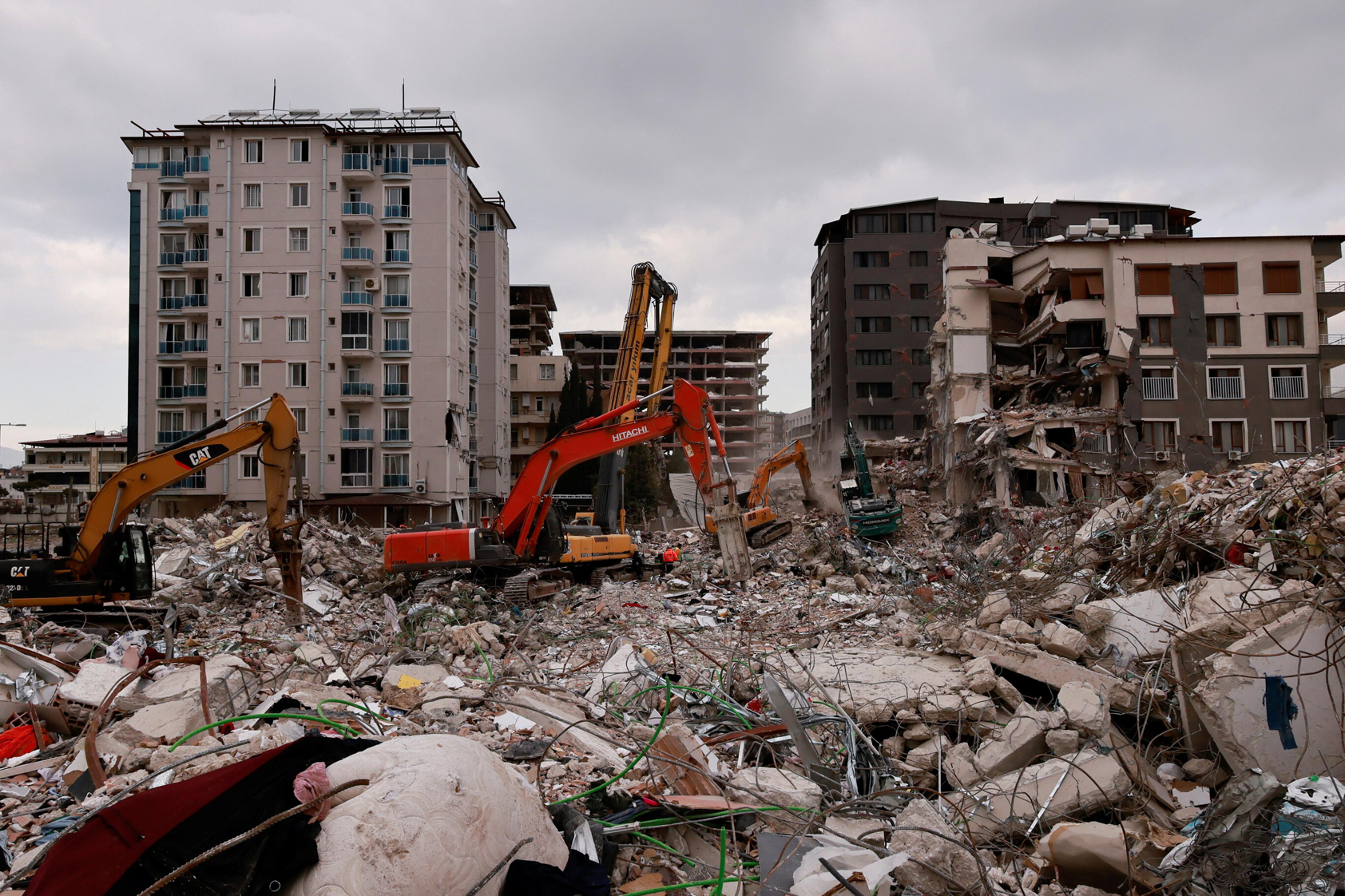ANTAKYA, Turkey (Reuters) – Turkey has launched a temporary wage support scheme and banned layoffs in 10 cities on Wednesday to protect workers and businesses from the financial impact of the massive earthquakes that hit the south of the country earlier this month.
A 7.8 magnitude earthquake on Feb. 6 killed more than 47,000 people, damaged or destroyed hundreds of thousands of buildings in Turkey and Syria and left millions homeless.
In Turkey, 865,000 people are living in tents and 23,500 in containers, while 376,000 are in student dormitories and public guesthouses outside the earthquake zone, President Tayyip Erdogan said on Tuesday.
Under Ankara’s new economic relief plan , employers whose workplaces were “heavily or moderately damaged” would benefit from support to partially cover wages of workers whose hours had been cut, the country’s Official Gazette said on Wednesday.
A ban on layoffs was also introduced in 10 earthquake-hit provinces covered by a state of emergency.
Business groups and economists have said the earthquake could cost Ankara up to $100 billion to rebuild housing and infrastructure, and shave one to two percentage points off economic growth this year.
Erdogan has promised a swift reconstruction effort, although experts say it could be a recipe for another disaster if safety steps are sacrificed in the race to rebuild.
Six people were killed in the latest earthquake to strike the border region of Turkey and Syria, authorities said on Tuesday.
It was followed by 90 aftershocks, Turkey’s Disaster and Emergency Management Authority (AFAD) said, adding fresh trauma to Antakya residents left homeless by the previous earthquake.
In power for two decades, Erdogan faces presidential and parliamentary elections in May, although the disaster could prompt a delay in the vote.
Even before the quakes, opinion polls showed he was under pressure from a cost of living crisis, which could worsen as the disaster has disrupted agricultural production.
Moves by the government to control information around the earthquake have been met with public anger.




